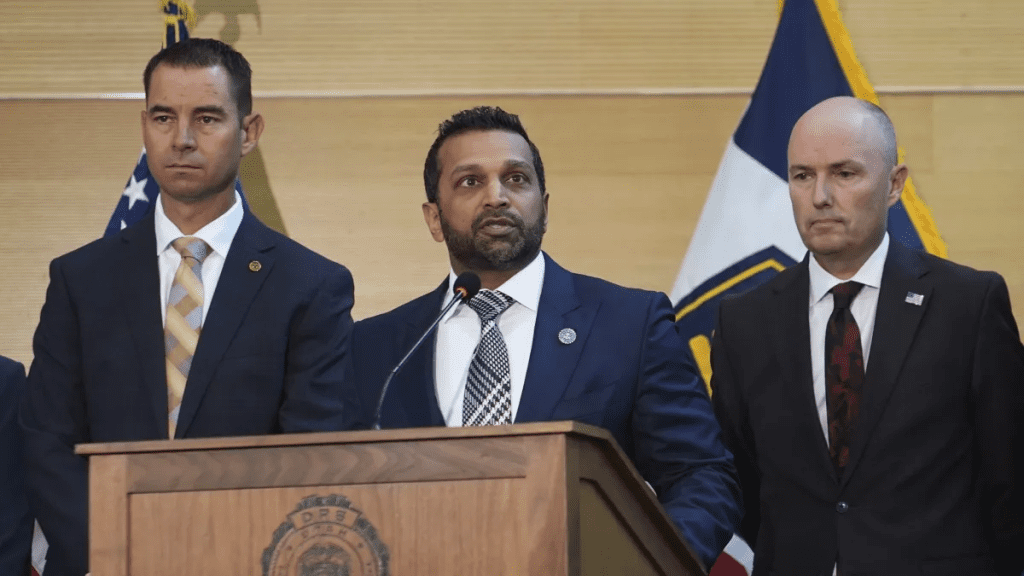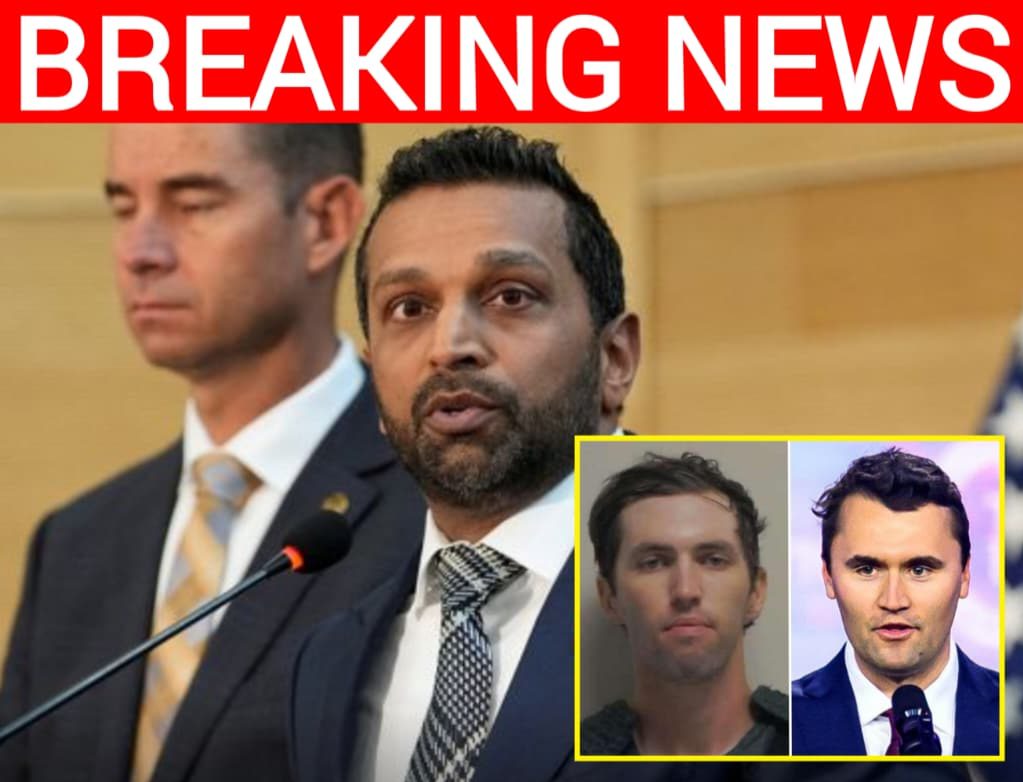Kash Patel Reveals FBI Found Text Messages From Charlie Kirk’s Assassin Detailing Plan To “Take Him Out” As Probe Expands
The investigation into the killing of Charlie Kirk has reached a chilling new point after FBI Director Kash Patel confirmed that the assassin had exchanged text messages with another individual before carrying out the attack. In those messages, the suspect stated clearly that he had the opportunity to take out Kirk and that he was going to do it. According to Patel, the evidence leaves little doubt that this was not an impulsive act but something that was planned in advance, with at least one other person aware of what was coming.

Patel explained during a television appearance that the FBI had recovered the text exchange and verified its authenticity, handing the evidence over to both local and federal authorities for prosecution. He emphasized that this was a matter of “such public importance” that the details needed to be shared openly, saying the public had a right to know what investigators had found. The revelation has stunned many who had been waiting for clarity on whether the killer acted entirely on his own or whether outside groups or individuals were tied to the crime.

The FBI Director said investigators have already spoken with the suspect’s family, who told authorities that he had been subscribing to increasingly radical views in recent years. That shift, coupled with his hatred for what Charlie Kirk stood for, appeared to fuel his decision to go forward with the attack. Patel acknowledged that there are still unanswered questions, especially about why the individual who received the assassin’s message did not alert law enforcement or attempt to stop what was happening. “That’s a great question, and we don’t have an answer on that just yet,” Patel admitted, making it clear the investigation is ongoing.

For the public, this new information is both horrifying and frustrating. The idea that someone knew, even partially, about a plan to assassinate a young activist and did not act is difficult to process. It raises bigger concerns about how political hatred and ideological extremism can spread so quickly and convince people that violence is justified. Kirk’s death was already a devastating tragedy, but learning that others may have been aware of the plot has added another layer of grief and anger.
What stands out in Patel’s comments is his insistence on transparency. In many cases, law enforcement holds back details to protect investigations. Here, Patel was clear that the FBI wanted the public to understand what they were dealing with. His statement that “you can kill a man but you can’t kill the message” echoed in the minds of many who believe Kirk’s legacy will continue despite the attempt to silence him. It was a reminder that while the investigation looks backward to understand what happened, there is also a need to look forward and ensure that something like this does not happen again.
The country is now waiting to see what prosecutors will do with the evidence. Charges against the assassin are expected to include not only murder but potentially conspiracy, depending on what investigators uncover about the others involved. The unanswered question remains whether the recipient of those text messages will face legal consequences for failing to warn authorities. As Patel said, it is a question without an answer for now, but one that the public will demand clarity on.
This development is more than just another update in a legal case. It is a stark reminder of how dangerous political division has become, and how quickly it can turn words into violence. The text messages prove intent, but they also prove something deeper: that hate can connect people in ways that are destructive and tragic. For Charlie Kirk’s family, friends, and supporters, the pain is still raw. And for the country, the story is far from over.


